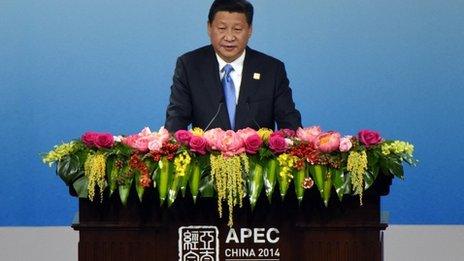China's growing demand for Turkmenistan's gas
- Published
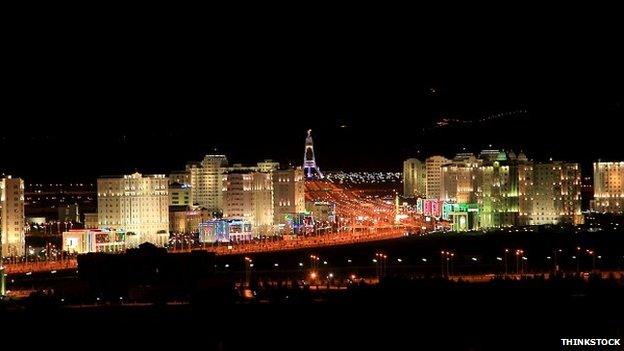
Turkmenistan has the world's fourth-largest gas reserves
China is a country facing huge environmental challenges as it pursues economic growth.
One of its aims is to reduce its dependence on coal and switch to alternative energy sources like gas.
So at an energy conference in the Turkmen capital, Ashgabat, China has been unveiling plans to pour billions into Turkmenistan's energy sector just so it can boost its own gas supplies.
Since December 2009, the total amount of gas from Central Asian countries "mainly from Turkmenistan, delivered to China has reached 100bn cubic metres," says Deng Minmin, general manager of China's National Petroleum Corporation (CNPC).
But Beijing is planning to increase its gas imports from this region further, and by 2020 China plans to be importing 65bn cubic metres of gas from Turkmenistan every year.
In order to deliver such large volumes it is expanding the existing pipeline network, and by 2016 the fourth branch of the China-Central Asia pipeline will be completed - raising the export capacity level to 85bn cubic metres a year.
China wants to source more energy from Turkmenistan
A new Silk Road
With the fourth-largest gas reserves in the world, Turkmenistan is a vital energy partner for China.
Crucially, China's CNPC is the only foreign company that has a direct access to Turkmenistan's on-shore gas fields - including the world's second-largest gas field, called Galkynysh.
This energy expansion fits China's recently announced "Silk Road economic belt" policy, which focuses on a single transport infrastructure to "break the connectivity bottleneck" in the region.
And this month president Xi Jinping announced that China would set up a $40bn (£25bn) Silk Road Fund. Part of that money will go to infrastructure projects in Central Asia.
The United States has been pursuing a similar policy to boost economic co-operation and connectivity in Central and South Asia with the same name - Silk Road.
Daniel Rosenblum, US State Department deputy assistant secretary for Central Asia, says that the infrastructure projects China has been implementing fit the goals of its own strategy - but there seem to be some differences, too.
"Our contribution in those projects will often be in the form of what I'd call a software rather than a hardware - that is, improving customs and border procedures, harmonising policies of the countries so that the trade can flow in a continuous way."
China has been investing billions of dollars into Turkmenistan's energy sector. Just on the first phase of the Galkynysh field's development it spent more than $8bn.
Pipeline plans
But some energy specialists warn that Turkmenistan is becoming too dependent on China.
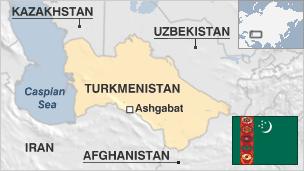
"Development of these fields is very expensive and not only requires Chinese capital but has also required Turkmenistan to borrow money from China to meet its share of the development costs," says John Roberts, energy security specialist.
"So in effect you've already got Turkmenistan being a debtor nation to China - and that puts the Chinese in a very strong position."
This could seriously affect negotiations on the gas price.
At the moment the Turkmen government is trying to diversify its energy supply routes to decrease its dependency on China, and is pushing forward with two main projects.
One of them is the US-backed TAPI pipeline, which will deliver Turkmen gas to Pakistan and India via Afghanistan. Turkmenistan has recently announced that construction will start next year.
The other project is a more controversial one: the Trans-Caspian pipeline to deliver Turkmen gas to Europe. Until recently this had been considered unrealistic.
Abdujalil Abdurasulov gained rare access to the conference
Caspian Sea questions
The main reason is Russia's position. Moscow is against construction of pipelines in the Caspian Sea until the sea's status is resolved - the Caspian is divided among five littoral states: Russia, Kazakhstan, Turkmenistan, Iran and Azerbaijan.
However, European Union (EU) officials say that they have made some serious advances in implementing the Trans-Caspian pipeline, and this year the EU finalised an environmental study of the project.
It has also designed a Caspian development co-operation concept to establish a body "that will be intermediary between TurkmenGaz and European companies....interested in purchasing Turkmen gas," says Denis Daniilidis, the EU's representative in Turkmenistan.
"We are close to the point where we will see the light at the [end] of the tunnel," he says.
- Published20 November 2014
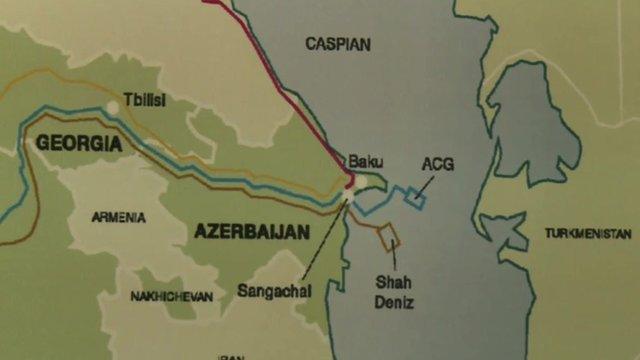
- Published16 November 2014
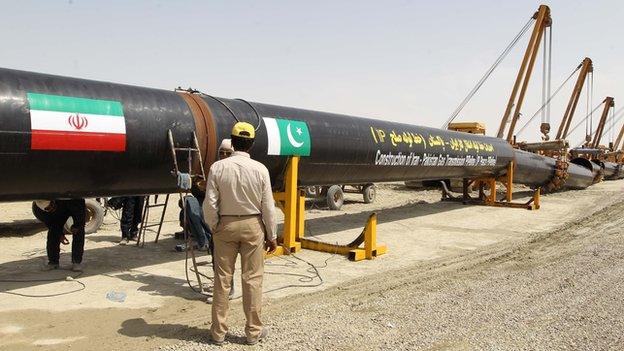
- Published24 March 2023
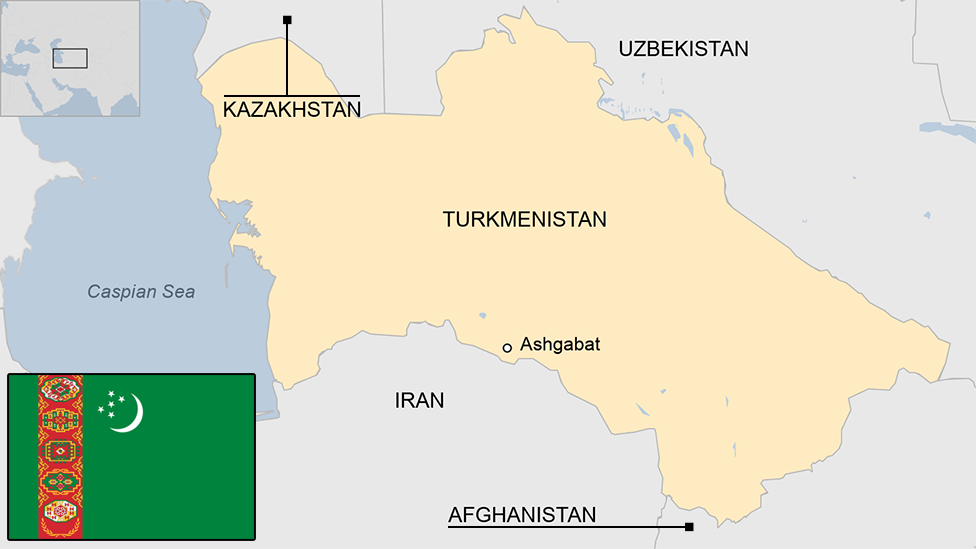
- Published9 November 2014
